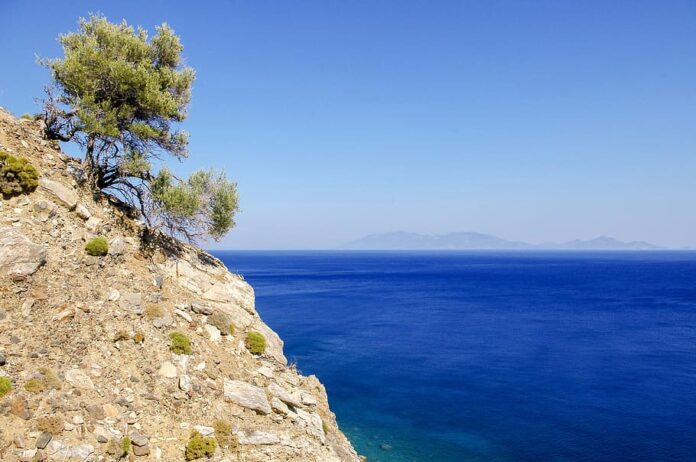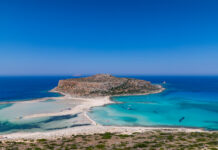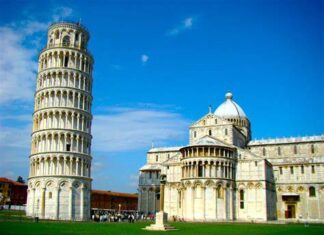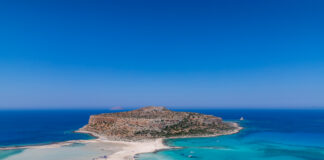Kos, the birthplace of Hippocrates, the father of medicine, is a beautiful and historic Greek island with much to offer. This guide provides an insight into Kos' food, culture, travel tips, interesting facts, and top attractions.
Food
The island of Kos offers a delectable array of local and traditional Greek dishes that will satisfy your palate.
Stifado
Stifado is a hearty Greek stew made with meat (usually beef or rabbit), small onions, and a rich tomato sauce, often flavored with cinnamon and other aromatic spices.
Souvlaki
This famous Greek fast food consists of small pieces of meat (typically pork or chicken) and sometimes vegetables grilled on a skewer.
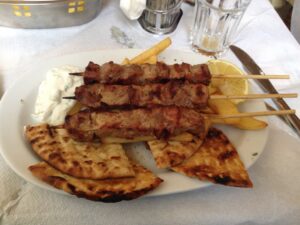
Baklava
Conclude your dining experience with baklava, a delightful dessert comprising of filo pastry layers, generously stuffed with diced nuts and sweetened with honey or syrup.
Culture
Kos is rich in culture and history, offering a range of experiences that reflect its ancient and modern heritage.
Greek Mythology
The island of Kos plays a role in Greek mythology as the land where Hercules, during his twelve labors, confronted the giant Ephialtes.
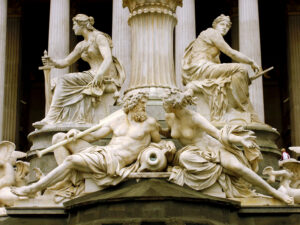
Ancient Greek Medicine
Known as the birthplace of Hippocrates, Kos houses the famous Asklepion, an ancient healing temple and medical school.
Travel Tips
To ensure an enjoyable trip to Kos, remember these travel tips.
Best Time to Visit
The best time to visit Kos is from May to October when the weather is warm and the chance of rain is low.
Getting Around
While Kos is a relatively small island, renting a car or a bike is an excellent way to explore. Taxis and local buses are also available.
Currency
Greece uses the Euro (€). Credit cards are widely accepted in Kos, but carrying some cash for smaller establishments and remote areas is a good idea.
Interesting Facts
Here are some intriguing facts about Kos that make this island truly unique.
Birthplace of Hippocrates
Kos is known as the birthplace of Hippocrates, considered the father of modern medicine.
A Blend of Cultures
Due to its strategic location, Kos has seen many civilizations come and go, leaving behind a blend of Greek, Roman, Ottoman, and Italian influences.
Top Places
Kos has abundant historical sites, beautiful beaches, and charming villages.
Asklepion
Asklepion is one of the most significant archaeological sites in Kos. It served as a sanctuary dedicated to Asclepius, the god of medicine, and a school of medicine in ancient times.
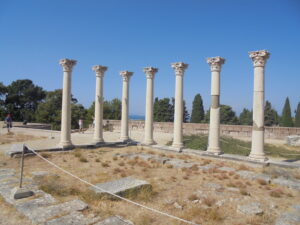
Neratzia Castle
Situated in Kos town, Neratzia Castle is a well-preserved fortress built by the Knights of St. John in the 14th century.
Hippocrates Tree
Located in Kos town, this ancient tree is said to be where Hippocrates taught his students, although the current tree is only around 500 years old.
Paradise Beach
One of the most famous beaches in Kos, Paradise Beach (also known as Bubble Beach), is renowned for its clear waters and fine sand.
Zia Village
Nestled on the slopes of Mount Dikeos, the village of Zia offers breathtaking panoramic views, especially at sunset, and is home to traditional tavernas and shops.
Kos offers a unique blend of natural beauty, rich history, and warm Greek hospitality. This guide has provided a glimpse into Kos' culinary delights, cultural heritage, essential travel tips, interesting facts, and must-visit locations. Explore and enjoy the charm of Kos to the fullest.

